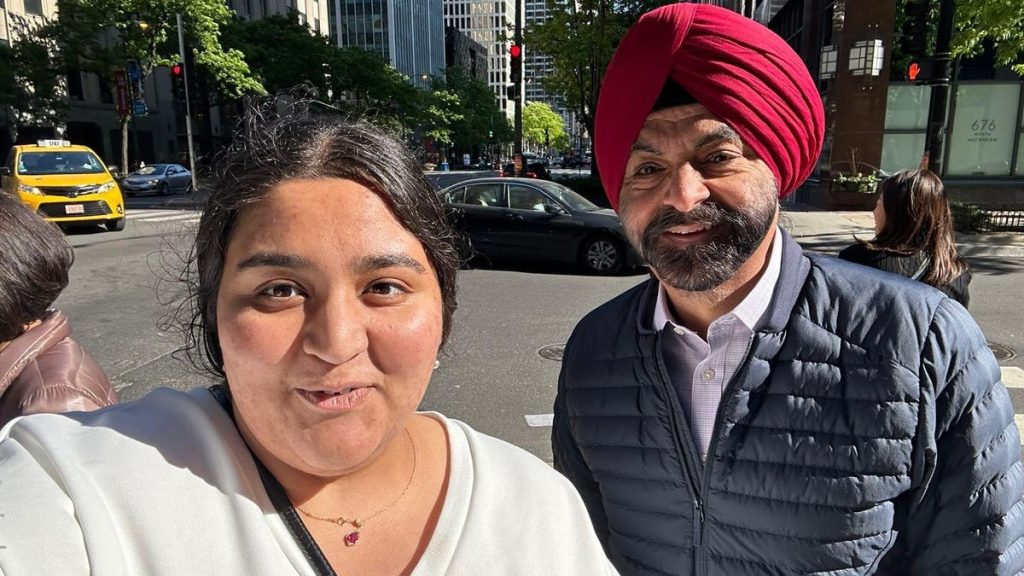On February 23rd, 2023, Ajay Banga was nominated by President Biden to lead the World Bank Group. On May 3rd, 2023, the World Bank confirmed Ajay Banga as its fourteenth President, and he started his term on June 2nd, 2023. I have been analyzing Ajay’s nomination as the new President of the World Bank since the announcement news was released earlier this year. According to me, Ajay Banga’s appointment as the new head of the World Bank is a continuum from his work as the CEO of Mastercard, where he drove the upliftment and financial empowerment of the bottom class of society at a global level. His appointment also underlines the transformation needed in the role of CEOs of not just leading financial companies but also of technology companies. As the technology sector grows its tentacles to legacy industries (especially by deploying Artificial Intelligence), it will be critical for the CEOs to realize that social impact is an equally important metric as pure financial results.
My thoughts are corroborated by Mike Froman, Vice-Chairman and President, Strategic Growth for Mastercard, who said in a Linkedin post on May 5th, 2023, “With Ajay’s confirmation, the World Bank is gaining a tenacious, tireless leader who cares deeply about helping people on a global scale. I’ve worked with Ajay for decades – he’s a fantastic choice for the job and he’ll keep growing the organization’s ambitions in climate, poverty alleviation, economic development, and financial inclusion.”
Ajay’s initial work at the World Bank also supports this argument. Ajay recently spoke at the World Trade Organization, “Services generate more jobs than any other sector. They provide millions of people with the dignity of work. Most importantly, services drive inclusive growth & offer a ladder out of poverty for women & young people, who very often are excluded from the workforce.”
If financial results were the sole goal for a corporation, I believe that Artificial Intelligence as the CEO can be better than human CEOs in decision-making and driving results. But the role of a CEO should be more than just financial results. Social impact needs to be among the top two deliverables for a CEO. In fact, I believe that Wall Street should measure the CEO on the social metric first. Granted, most large corporations have a Corporate Social Responsibility department, but the low budget allocation percentage tells you that it is a mere tick mark. I don’t fault the management for that because Wall Street only measures them quarterly on financial results.
Another argument I have heard from CEOs is that they are already driving social impact indirectly and even somewhat directly by driving product success and job creation. I do agree with that, but it is inadequate and is not done with social impact as one of the top two metrics. I am stressing that social responsibility and impact need to be counted as key success metrics for the CEO. It is important to realize that social impact also indirectly brings business value to corporations. So I would like to flip the argument on its head and claim that instead of driving social impact indirectly through profit-making, let’s drive profit-making indirectly through social impact. I believe that profit will scale to a much bigger number.
Corporations should look at universities as examples of social impact institutions. The mindset of a University is way beyond generating revenue for itself. Most universities think of impacting their local community, which transcends the physical boundary of the university. This community involves not just the students, staff, and faculty of the university but also residents in the vicinity areas. In addition, universities also think of driving fundamental research to uplift society. Similarly, I feel that corporations should think of bringing impact to society, starting with their local community based on their location.
Schools and colleges have done an excellent job of inculcating a sense of community development in young minds. In fact, high schools have mandated projects for community service. Colleges have mandatory questions on service work in their college applications as well. But these questions are typically not a part of a corporate job application. After graduating from college and getting hired for a job, community service or social impact, in general, is merely voluntary. Hence, as a student finishes college and enters the corporate world, there is a break in the social service aspect of his life from a success measurement standpoint. This chism needs to be addressed by corporations.
In summary, the appointment of Ajay Banga, a mainstream corporate executive, as the President of the World Bank is a wake-up call for corporate America to evaluate its priorities beyond economic interests. With the rise of Artificial Intelligence, I feel it is even more critical for corporations to focus on social impact.
Read the full article here










